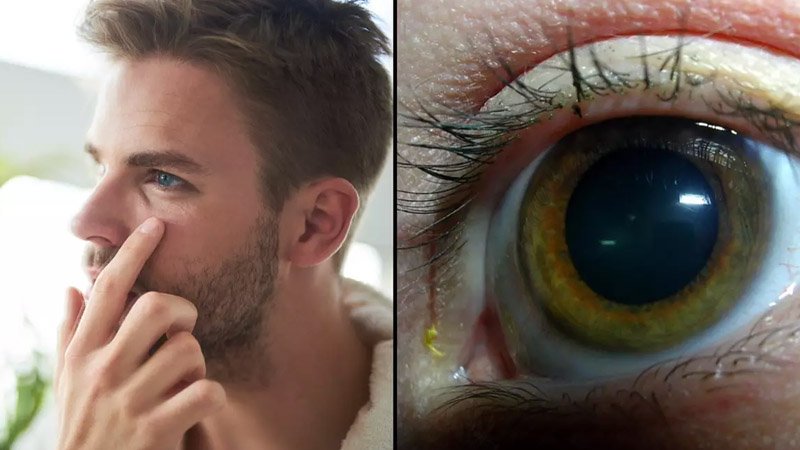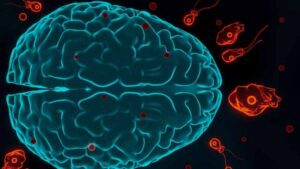
Credit: Getty Stock Images
There’s nothing better than a good night’s sleep—you wake up feeling rested, refreshed, and ready for the day ahead. However, many of us notice the goop in the corners of our eyes when we first look in the mirror in the morning. This yellowy ‘sleep’ crust is a common bodily function, but what exactly is it and why do we get it?
One TikToker has come to the rescue to answer this age-old mystery. “If you have ever woken up in the morning and you have some crust on your eyes,” Andrew Huberman explained. “And you know that crust, that kind of yellowy stuff, sometimes it’s yellow, I know this is kind of gross.” He continued, “That’s actually dead bacteria that your eyes have successfully defeated during your night’s sleep.
So when you wipe those away, you’re taking the casualties of a war that you won during your night’s sleep and you’re whisking those away.” The eye produces a small amount of mucus and oils to stay moist. Since you don’t blink while sleeping, the discharge can collect in the corners.
This discharge can take many forms, including crusty, sticky, thick, thin, white, clear, or slightly yellow. While eye discharge is normal and usually no cause for concern, it’s important to note that an eye with lots of sticky yellow pus on the eyelashes can be a symptom of conjunctivitis.
This condition, also known as red eye, is caused by infection or allergies. Although it typically resolves on its own within a couple of weeks, it can be quite uncomfortable. Conjunctivitis often affects both eyes, causing them to become red, burn, or feel gritty, producing pus that sticks to lashes, itch, and water. Not ideal.
The NHS advises several self-care measures to ease the symptoms of conjunctivitis, which is highly contagious:
- Wash your eyelids with clean water. Boil the water, let it cool down, then gently wipe your eyelashes with a clean cotton wool pad to clean off crusts (use one piece for each eye).
- Hold a cold flannel on your eyes for a few minutes to cool them down. Additionally, the NHS warns against wearing contact lenses until your eyes have fully recovered.
Understanding the cause of that morning eye crust can make it a little less bothersome. So, next time you wipe it away, remember you’re removing the evidence of your eyes’ nighttime battle against bacteria.


